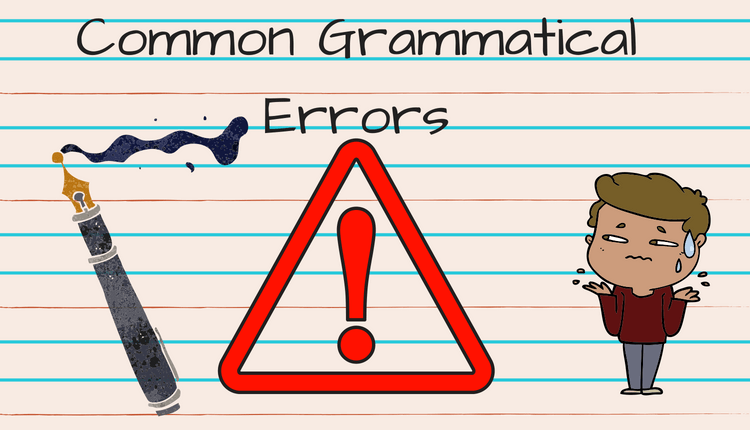
Grammatical error is a term used to describe patterns of incorrect, obsolete, or controversial usage in tutorial synchronous linguistics. Which reminds of AN incorrect correction or an inappropriate verb tense. Also known as a usage 0x0 0x0 error. Compare grammatical errors with accuracy.
It is also called error, usage error, grammar error or wrong, unhealthy grammar.
Grammatical errors are usually (although commonly misunderstood) distinguished from actual errors, logical errors, misspellings, typographic errors, and misspellings.
Interestingly, many people see usage errors primarily as a potential supply of gaff or embarrassment, not as a barrier to effective communication. Used in tandem with an ad for an “amazing book”, “Mistakes in English will embarrass you, keep you socially and at work. It can make you look awkward and hide your true intelligence.” Note that there is no specific mention of singular pronouns in the second sentence. Some English lecturers may find this to be a grammatical error especially once related to a wrong pronoun.
Examples and observations
“Wrong English,” says Barrier Baker, the expression seems to be a “grammatical error” and in a sense, paradoxical, a form that cannot be grammatically correct and incorrect at constant times. Grammatical errors should be avoided and ‘construction errors’ or ‘errors in English’ should be used instead. Of course, one should not call it ‘good grammar’ or ‘bad grammar’.
To Sublimation Printer and Lars-Gunner Anderson, who quoted in “Language Learning and Use Errors”, “We believe that, like most linguists, local speakers are not mistaken.”
Garner on grammatical error
“If the narrators believe that the use of any linguistic evidence justifies the use. So we should not be narcissistic about this tendency. Hardly anyone would want to be a non-judgmental collector of evidence. Gathering evidence from his means is more interesting and valuable than the last.” Garner, in his big Apple Times article, says, “To flute the basis of a language ৷ or Flannel Brian A. Garner, the amount of” public “reasoning – as one would like – is that they have to use language effectively.”
In “Garner’s Trendy Yank Use” Garner notes that “because grammatical meanings are (1) ‘grammatically related’ [grammatical subject] or (2) ‘grammatically consistent’ [a grammatical sentence], there is nothing wrong with age – the recent phrase There may be a grammatical error (i.e. 1). This is acceptable because of the criminal attorney and the logical error phrase. “
Synchronous linguistics and usage
“Use is a thought that embraces different aspects and perspectives on language. Synchronous linguistics is actually just a small lower half that will be used, although some people use one word for another when they really have a controversial purpose as a grammatical error. Mariam, Labeled – Matching Webster’s Body Dictionary.”
Error analysis
“Error analysis changes a descriptive approach to error. The result provides descriptive techniques instead. Why a student makes a specific grammatical error and undoubtedly borrows from this field. Provides a strategy for determining what might be the normal form. Prescriptive drilling Changes have been made that include many basic writing texts. Unfortunately, error analysis in composition school classrooms has generally worked to characterize errors, “said Between Students Language and Eleanor Kutz Academic Lecture.”
The mild side of grammatical error
Here are some dialogues from the eighteenth episode of the twelfth season of The Simpsons, Error of Error.
- Early Mobster: Hey. They are throwing robots.
- Linguo: They’re throwing robots.
- Second Mobster: It’s disrespecting us. Shut up
- Lingua: Shut up.
The second snatcher: Are you a mother?
- Early Mobster: You’re not that big.
- Second snatcher: I and he can kill you in Alabanja.
“Error error.” Electro-acoustic transducer The Simpsons, b. Directed by Anderson, Twentieth Century Fox, 2001.





